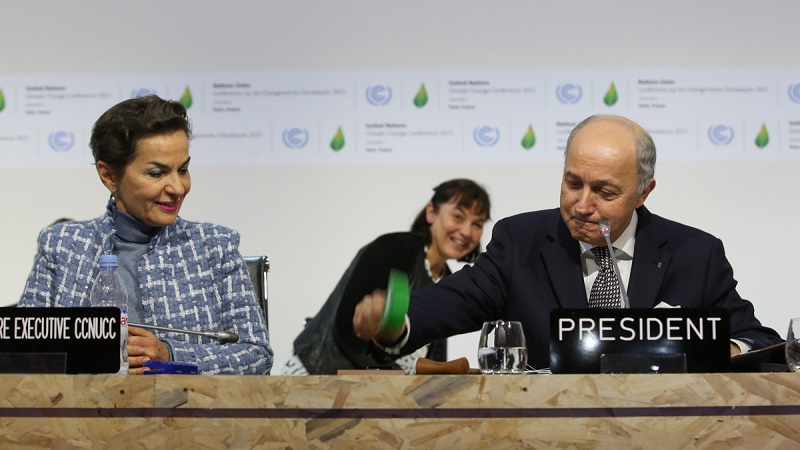The Paris climate deal is a hair’s breadth away from meeting the criteria to enter into force in 2016.
That is the upshot of two independent analyses, by the Marshall Islands foreign ministry and consultancy Climate Analytics.
A self-described “coalition of high ambition” formed at the UN talks is urging countries to ratify the pact swiftly so it can swing into action.
Marshall Islands president Hilda Heine said: “What we agreed in Paris at the end of last year will likely now have the force of the law by the end of this year. This is a big recognition of the urgency with which we must now get on with the job.”
Weekly briefing: Sign up for your essential climate politics update
The agreement takes effect 30 days after a double threshold is met. Fifty-five countries responsible for 55% of global greenhouse gas emissions need to go through their various legal processes at home, then submit documents to the UN.
So far, 22 countries have done so, led by island states acutely vulnerable to the impacts of sea level rise.
North Korea became the latest to deposit its ratification papers this week. It counts towards the numbers, despite being one of a handful of countries not to pledge domestic climate efforts towards the deal.
Peru, Morocco, Iran, Ukraine and Ghana took the necessary steps at home in the past month, ready to file with the UN.
Many leaders have promised to follow this year, including representatives of the two biggest emitters: China and the US.
Report: Ban Ki-moon calls on world to unite behind Paris climate deal
UN secretary general Ban Ki-moon is holding a ratification event at the General Assembly meeting in New York on 21 September.
By the Marshall Islands reckoning, 58 countries and 54% of emissions are in the early approval club. Climate Analytics counts 55 and 56%.
The differences reflect some room for interpretation over what counts as a commitment. Crucially, Climate Analytics includes Brazil, which accounts for 2.5% of emissions, citing “internal sources”.
Brazil’s lower house has already passed a law to ratify the pact. It is now in the hands of senators. They are preoccupied with impeaching suspended president Dilma Rousseff, but insiders expect them to find time to do their bit this autumn.
Other nations that could take the deal over the emissions threshold include India, Turkey, Japan and South Africa.
“There can be no excuse for countries unnecessarily dragging their feet towards ratification,” said Marshall Islands foreign minister John Silk.
The campaign reflects some anxiety over Donald Trump’s assertion he would “cancel” the Paris deal if elected US president in November.
Advocates believe it would be harder for Trump to carry out that threat if the agreement had entered into international law.
